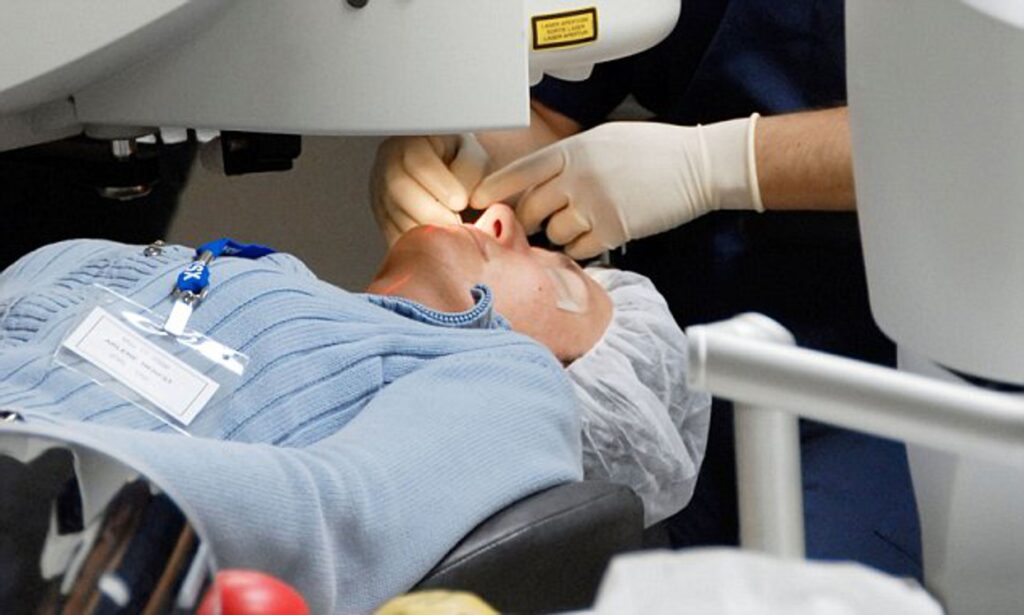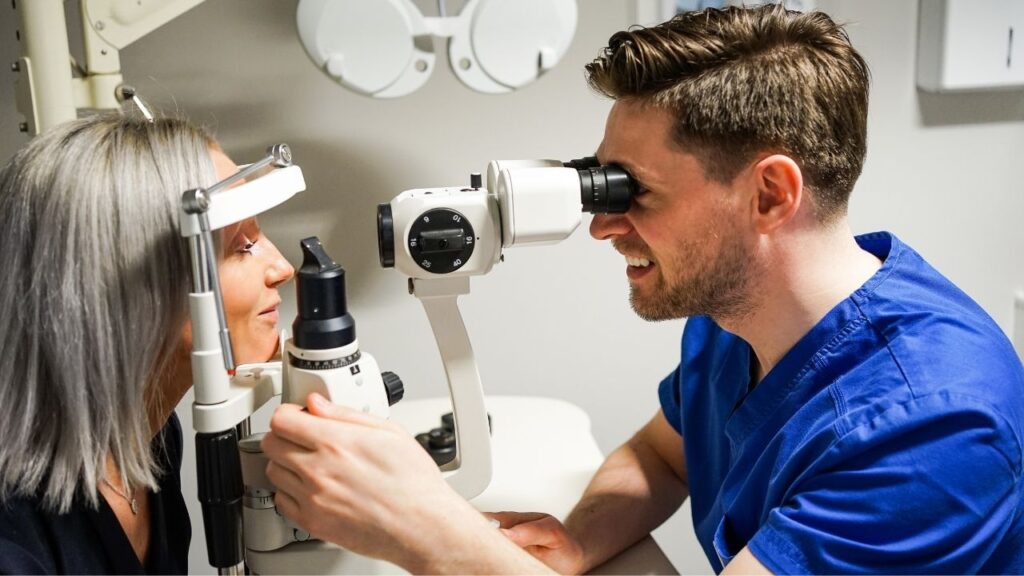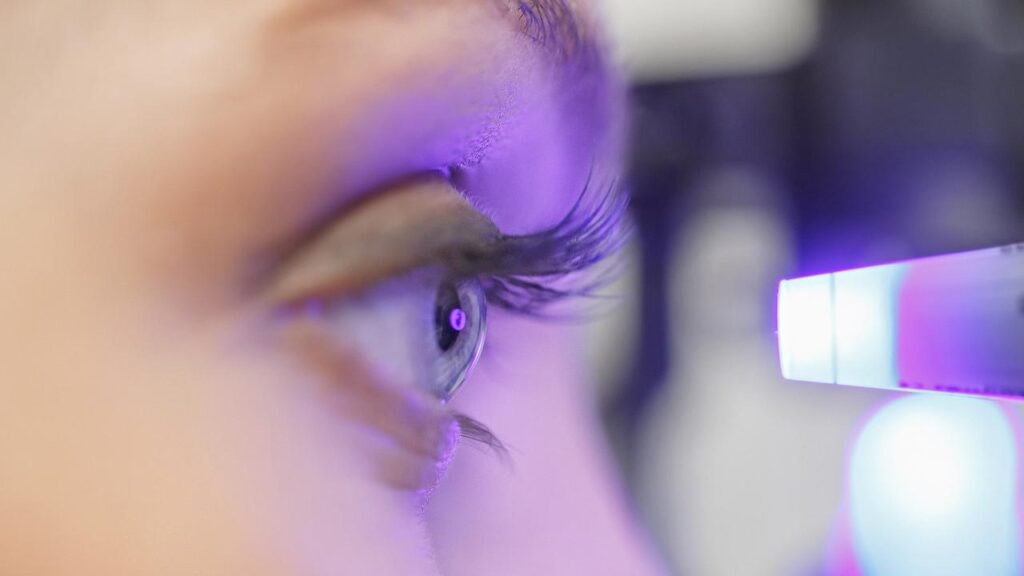Your eye health is important to us here. We’re here to make sure you’re educated and at ease about your forthcoming cataracts operation as one of Australia’s top ophthalmologists and cataracts experts. To help you prepare for a good result and avoid any uncertainty, we have created this simple 8-step checklist with suggestions and recommendations. Prior to having cataracts surgery:
1. Keep track of any changes in your eye health.
After your procedure, take great attention to your eyes for two weeks. Watch out for infections in particular since a good surgery depends on your eyes being healthy and clean. Call our offices right away if you have any redness, irritation, or discharge so that We can discuss your symptoms with you. Before performing cataracts surgery, we may wish to set up an extra visit to check your eyes. Any changes to your overall health, such as a severe cold or breathing issues, should also be noted and mentioned to the doctor.
2. Talk to the doctor about your prescription regimen.
Some drugs may make cataracts surgery more difficult or raise your risk of bleeding during the process. Any drugs you may be taking to address other diseases or symptoms should be disclosed to the doctor. We could suggest that you adjust the dosage’s frequency or temporarily cease taking them. If you are diabetic or on medicine for reflux, you shouldn’t modify your drug regimen without first seeing your doctor.
Related: 5 Side Effects of Laser Eye Surgery and How to Prevent Them

3. Use the eye drops.
A few days before to the treatment, you could be given a prescription for antibiotic eye drops to use. You will be guided through this routine by us. Apply eye drops as directed by the treatment plan to aid in the prevention of any infections. The drops may also be applied the day of the procedure. Please bring these to the procedure with you. Lean more about antibiotic eye drops.
4. Abstain from using contact lenses.
In the three days before surgery, refrain from using contact lenses. Your eye may get irritated by them, which can postpone the cataracts surgery. Take lots of rest and put on your glasses.
5. Don’t use makeup and dress comfortably.
Don’t dress up for surgery; we believe you look amazing just the way you are. On the day of your procedure, dress in warm, sensible attire; avoid wearing high heels. The ideal shoes are flat ones with strong, non-slip tread. You won’t need to change for the treatment since you’ll be provided a robe to wear on top of your clothing. To the surgery center, refrain from wearing any makeup, cologne, perfume, aftershave, spray-on deodorant, or hairspray. The night before your surgery, completely wash off all signs of them, particularly around your eyes. Get more about eye surgery preparation on https://www.healthdirect.gov.au/surgery/lasik-surgery
6. Adhere to the physician’s recommendations on fasting.
Do not eat or drink after midnight on the day before your visit, unless We specifically tell you to. Additionally, it’s crucial to refrain from ingesting any alcoholic drinks for at least 24 hours before to cataracts surgery (including wine, beer, and liquor). You’ll get a decent night’s sleep and your body will be more prepared for the surgery if you heed my advice. Discuss this with We in the days leading up to the surgery if you have diabetes or are on a specified diet to determine the best course of action for you.

7. Get ready to recuperate.
The majority of patients return home the same day as surgery, but because you can’t drive, you’ll need to find a transportation. We advise having a friend or family member come with you to the surgery facility, wait for you while it is being done, and then take you home afterward. From check-in to check-out, the total procedure takes around three hours. To wear following surgery, please bring a pair of dark, non-prescription sunglasses.
Patients usually resume their regular routines within a few days, however the first hours after cataracts surgery may be challenging for your eyes to adapt. Following the treatment, the doctor may restrict tasks like bending or lifting, so it’s a good idea to make arrangements for additional assistance around the house, while picking up post-op prescriptions, and when going to follow-up appointments. For a healthy healing period, we advise taking at least two or three days off from work.
8. Make inquiries.
We will go over all of the information above, along with more, at the surgery facility, so don’t be hesitant to ask any questions or ask for clarification if necessary. Speak with the doctor if you have any questions about the preoperative instructions, what to anticipate during the surgery, or how to care for yourself afterwards. The most crucial thing is that you feel at ease and prepared for the operation with the greatest information and advice from our experts. To complete any last-minute paperwork or to talk with us about your concerns, allow yourself around 30 minutes of extra time before coming.
You are now prepared for cataracts surgery. Please keep in mind, however, that the recommendations in this article are just designed to serve as a general reference and may not be suitable for your particular requirements in terms of eye care. Always refer to and abide by the doctor’s exact recommendations. We want your time at our surgery facility to be enjoyable, safe, and beneficial.
Final thoughts
Cataract surgery might be particularly beneficial when your cataracts start to hinder the treatment of another eye issue you may be dealing with. A doctor would often suggest this course of action if your cataracts start to make it difficult for you to carry out all of your everyday chores and to live your life as you’ve come to expect it.
Your eyesight will often improve right away after cataract surgery during the first several days. To get close to 100% better, however, it can take you four to six weeks (or longer, depending on the situation).
Because every patient is somewhat different from the next, there is no “one size fits all” approach to guaranteeing a speedy and successful recovery following an operation like this. However, if you really want to make sure that your recovery and aftercare procedures go as easily as they possibly can, there are a few important tips that you’re going to want to keep in mind at all times.

